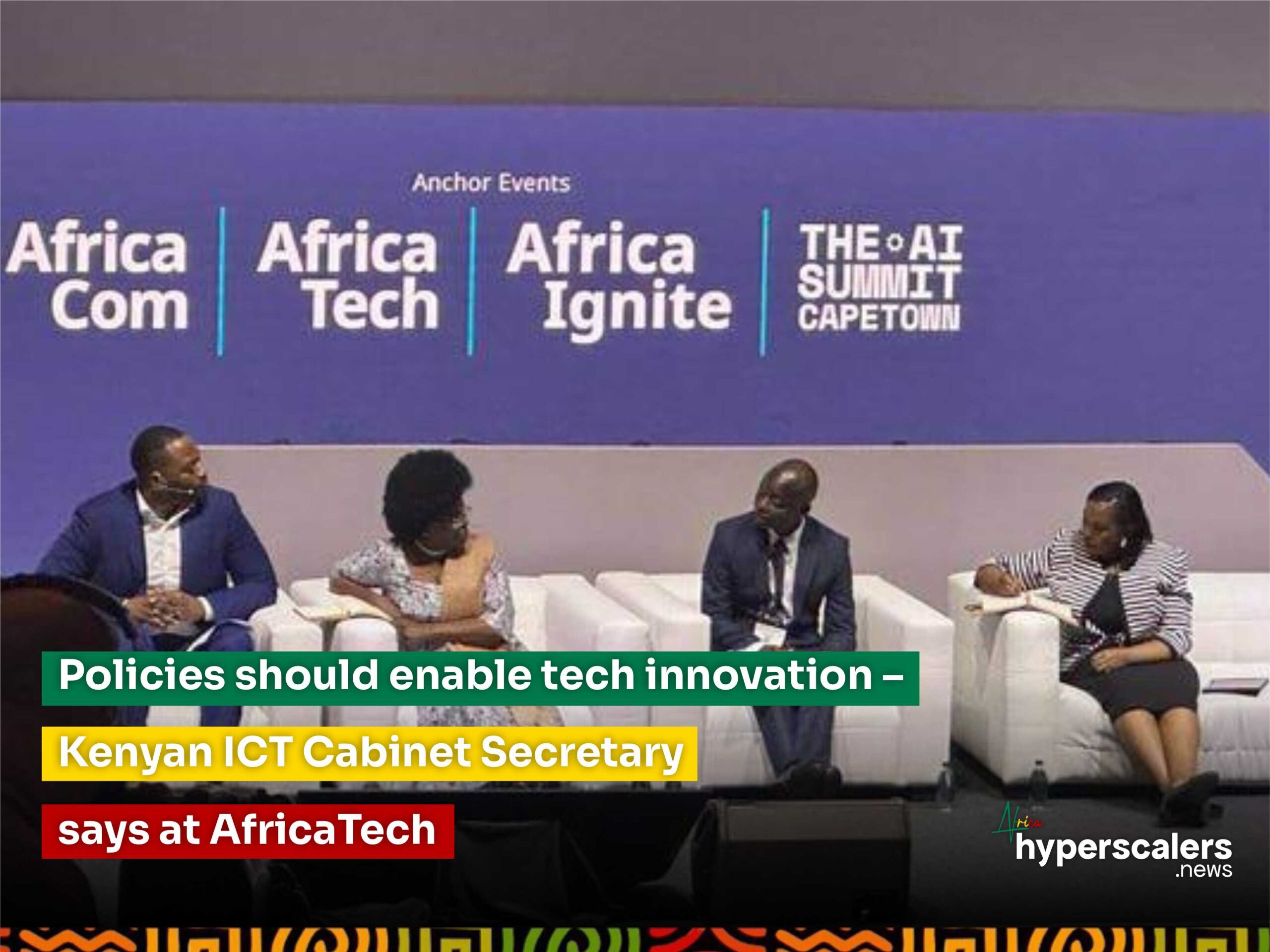Kenya’s ICT Cabinet Secretary, Dr. Margaret Nyambura Ndung’u, emphasized the importance of creating an enabling environment for innovation during her participation in a panel discussion at the 27th annual Africa Tech Festival in Cape Town. The discussion, titled “Striking the Balance: Achieving Innovation-Friendly Tech Regulation,” focused on the role of government in fostering technological growth on the continent.
Dr. Ndung’u highlighted that Kenya’s Constitution mandates that policymakers engage in public consultations when formulating policies. “We work with the private sector, we work with stakeholders to ensure that our policies are as progressive as they can be,” she explained.
She also noted Kenya’s ongoing efforts to build digital infrastructure, particularly data centers, in collaboration with the private sector. “We have also collaborated with the private sector to lay fiber, our target is to lay 100,000 kilometers in the country,” she continued.
In addition to infrastructure, Dr. Ndung’u mentioned Kenya’s ICT training centers, spearheaded by Mastercard, and the country’s data innovation hubs, which are designed to encourage young people to develop sustainable, innovative solutions. “We are encouraging young people to come up with innovative sustainable solutions,” she said.
Zambia’s Permanent Secretary in the Ministry of Technology and Science, Dr. Brilliant Habeenzu, concurred with Dr. Ndung’u, stressing that collaboration between African governments and the private sector is crucial for digital transformation. He pointed to Zambia’s Public Private Dialogue Forum (PPDF), a platform that facilitates discussions on policy and regulatory issues. “Through that forum, there are many private sector players in the country contributing to a digitally transformed Zambia,” Habeenzu stated.
Uganda’s Minister of Science, Technology and Innovation, Dr. Monica Musenero Masanza, underscored the critical role of youth in driving technological innovation. “There was once an advert that alluded to the fact that a certain gadget was easy to use, and the young person in the advert said it’s so easy, even my dad can use it. Therefore, we cannot speak about technology without involving the youth,” she stated.
Dr. Musenero emphasized that the majority of innovators in Uganda and across the continent are young people, and their input is essential for effective policymaking. “We cannot design effective policies without understanding young people, without giving them a voice, or even involving them in the day-to-day decision making,” she remarked. She also highlighted Uganda’s approach to policy development, noting that the country gathers primary data and conducts research to ensure policies are tailored to local realities rather than following global trends. “In Uganda, we want to make sure that policy is well informed by data on the ground and not by a general sweep that happens globally, no, we do our own research and collect primary data. Sometimes we find that the popular trend is not favorable to our local ecosystem,” she stated.





